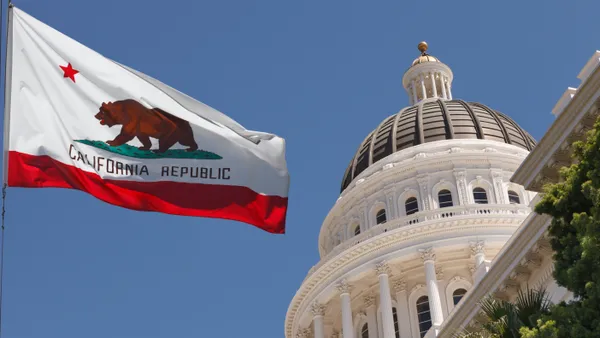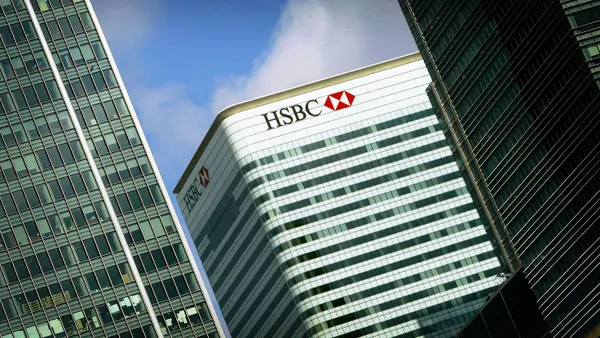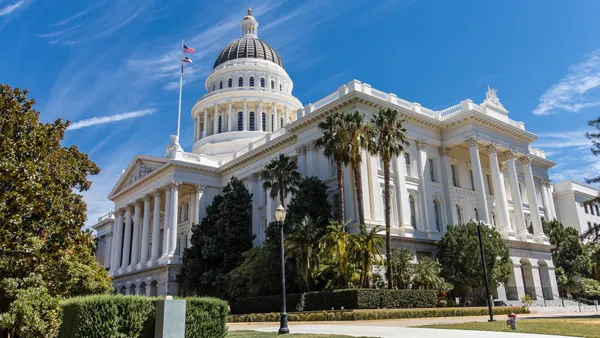Dive Brief:
- The United Nations-backed Net-Zero Banking Alliance updated its guidelines Wednesday, requiring members to disclose more about their climate targets, including how they plan to cut emissions from their capital markets activities — such as those that result from the buying and selling of stocks, bonds, derivatives or commodity futures.
- The updated guidelines also stress that each member bank should act independently in setting climate targets and taking related actions, as the coalition and its members have been accused of antitrust violations by state and Congressional Republican officials.
- NZBA said capital markets arranging and underwriting services banks provide clients — through issuing new debt and equity — are the “largest source of attributable greenhouse gas emissions” for some banks.
Dive Insight:
NZBA said the updated guidelines — which include capital markets emissions within its scope for the first time — maintain the “overarching ambition and key principles” of the original. The updates were approved by the group’s over 140 member banks and have been under review since early 2023, according to the release.
A proposal of the updated guidelines was sent out in February, and “comfortably cleared” the 50% participation and two-thirds approval thresholds required for adoption. Tracey McDermott, chair of the NZBA Steering Group, said the guidelines will help member banks in managing climate-related risks and opportunities and “support the transition of the real economy.”
“This bank-led update to the Guidelines, and its important addition of facilitated emissions from capital market activities, ensures that current and future NZBA member banks will continue to set targets in line with the most ambitious temperature goals of the Paris Agreement and the latest science,” Eric Usher, head of the UN Environment Programme Finance Initiative, said in the release.
In addition to including capital market emissions in future targets, the guidelines also require banks to establish an emissions baseline and annually measure and report their capital markets’ emissions.
NZBA said the banking industry plays a critical role in reaching net-zero by 2050 globally. “While banks alone cannot solve the climate crisis, they can act as part of the broader ecosystem to support the reduction of greenhouse gas (GHG) emissions by engaging with and providing financial solutions, wherever possible, to their clients and partners as they seek to transition to a low carbon economy,” the guidelines noted.
The guidelines will go into effect April 22 to coincide with the three-year anniversary of the organization. Members will have until then to align all new targets or existing targets reviewed after it goes into effect with the latest guidelines. Capital market emissions goals will need to be included in all new targets set or reviewed by Nov. 1, 2025. The guidelines will also apply to members of the Principles for Responsible Banking “that have selected climate mitigation as one of their priority areas,” according to its summary.
NZBA and similar UN-aligned net-zero industry groups have faced political pressure in the United States in recent years. In 2022, 14 Republican attorneys general began a probe of the group and six of its large member-banks: JPMorgan Chase, Bank of America, Citi, Wells Fargo, Goldman Sachs and Morgan Stanley.
The same six banks were also investigated by a dozen state heads of agriculture earlier this year and asked about their agricultural goals. None of the queried member-banks have set targets for the agricultural sector.












